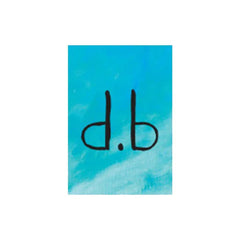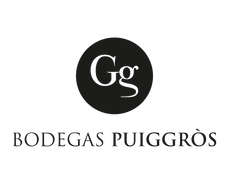Featured Collections
This Week's Wine Picks
Shop our sommeliers' favourites, or browse our full wine portfolio.
- Sparkling Wine, White Wine
- Garganega
- Organic, Vegan-Friendly, Volcanic
- Light Bodied
- 750ml
About the Winery
Azienda Agricola Tessari

The Tessari family have Soave in their blood. For three generations they have been extracting delectable wine from the well cared for vines of their Monteforte d’Alpone vineyards. With only a little over a hectare of Garganega grapes in the prestigious volcanic solis of Soave Classico, Antonio Tessari hand dug his cellar back in 1933 and started the legacy that continues today with his grandchildren: Germano, Antonio and Cornelia.
From vineyard to bottle, these three siblings oversee it all; with unwavering respect for tradition, quality and passion for the art of winemaking. The volcanic soils of the hillside are rich with basaltic rocks and clays, which guarantees the health of the plant and the promotes the mineral and floral aromas that are characteristic of the Garganega grape. Truly artisanal wine making at it’s best.
Press Reviews
WineAlign
91 points (2020) - David Lawrason
This is a very complete and well balanced sparkler, unusually made from the garganega grape of the Soave region. It pours fairly deep lemon gold. The nose is ripe peach, lemon-lime, subtle toast and mustard flower. It is medium bodied, fresh, just off-dry and very well balanced, with a dry, slightly pithy finish. Very complete, focused and well balanced. The length is excellent. Tasted June 2022
90 points (2020)- Michael Godel
Arcerus in garganega by Tessari from volcanic Soave lands (hills of Monteforte d’Alpone) is bottled under mushroom cork and cage, as opposed to crown cap in the spousal Avus. In this case Arcerus represents an ancient toponym linked to the tradition and history of Brognoligo. While Avus is “frizzante” Arcerus is “Extra Brut,” of higher residual sugar, less elemental and mineral feel, more flesh and delicacy in design. A much more festive and party favour of a sparkling wine, rich and luxurious in many ways. Flavour abounds yet it’s simpler and easier to understand than the introverted Avus. Which camp are you in? Drink 2022-2024. Tasted June 2022.
90 points (2020) - John Szabo, MS
A pure garganega-based sparkling from Tessari, quite ripe and fruity per the 2020 vintage, forward and ready to go, with moderate autolysis character. I like the texture and acids, the juiciness and generosity, the integrated effervescence, though at this price I'd hope for a little more classic method character - hopefully there are still some undisgorged bottles in the cellar for later release. Fruit also has a lightly oxidative/tropical character. As it stands, this is certainly enjoyable and well made wine. Tasted June 2022.
- White Wine
- Grauburgunder, Riesling, Sylvaner
- Biodynamic, Natural
- Dry
- 750ml
About the Winery
Huxelrebe
Weingut Bianka und Daniel Schmitt

Bianka and Daniel took over the Weingut Schmitt in 2012 as the fourth generation to lead the winery. They are based in Wonnegau in the south Rheinhessen, centered in Flörsheim-Dalsheim. All of the vineyards are in Flörsheim-Dalsheim and neighbor villages Monsheim and Kriegsheim. Bianka and Daniel have been working their 16 hectares biodynamically for over a decade and are one of only 80 producers in Germany to be Demeter certified. They work with amphorae as well as used oak barrels and release a ‘Natur’ line that contains no added sulphur.
Here are Bianka and Daniel in their own words:
“Working biodynamically is a lifestyle that includes producing and spreading preparations in the vineyards as well as social interactions. The interactions between the life in the soil (like bacteria, mykorizen, plants as green cover and the vines) are composed with each other. Vines become stronger and get more vitality from a living soil, not from chemical treatments.
This active interaction in the soil life, the mutual strengthening of the plants result in stronger resilience for the vines which reflects the high quality of the grape, supports the presence of the individual soil types (calcareous soil covered by clay and partly loess, pebble). By working according to the biodynamic principles, biodiversity is supported as an automatic successor. As a result, the vineyards and the biotopes created by Bianka and Daniel offer a home for a diverse and local animal community.
After hand picking, the grapes are processed with or without skin maceration. And rest in wooden oaks (5000L, 3000L, 1200L, 600L) or clay amphorae (1200L, 300L) for at least 12 months on the whole yeast depot. The focus is on offering an optimal aging potential for the years to come. In order to support the collegial exchange and to enable operational training in the field of biodynamic agriculture, Bianka and Daniel and their winery are proud members of the Renaissance des Appellations, Demeter and Vinnatur associations.”
- Red Wine
- Cabernet Franc
- Organic, Vegan-Friendly
- Dry
- Medium Bodied
- 750ml
- 13.50% alc./vol
About the Winery
Château de Parnay

Château de Parnay is the flagship of the AOC Saumur Champigny. The property is located along the Loire river, classified as UNESCO World Heritage, on the most reputable clay and limestone terroirs of the appellation. The historic property was taken over by Mathias Levron & Régis Vincenot in 2006 with the aim of restoring the nobility of this special place.
Drawing their strength from the authenticity of their values, they now cultivate 50 hectares of vines with the aim of producing exceptional wines in a way that respects the environment. They have been certified organic since 2013 and are about to be certified biodynamic too.
The Clos of Chemin des Murs is the jewel of the property! Coming from the imagination of it's orginal owner, Antoine Cristal, this Clos was built, planted and cultivated according to an unprecedented technique. On this half hectare of Chenin Blanc, each vine was planted on the north face of a stone wall. Through a hole in the stone the vine crosses through the wall and allowing the grapes to grow facing the southern sunshine. The vine is said to have its 'foot in the cool and belly in the sun'.
Press Reviews
Wine Align
93 points - Megha Jandhyala
This is a concentrated, complex, gracefully balanced cabernet franc. Notes of ripe red plums, blackberries, dark cherries, tobacco, dried leaves, and violets are interwoven here to form an elegant, engaging, and varietally representative flavour profile. The palate is densely flavoured but lithe, with fine-grained tannins and refreshing acids. The finish is long, layered, and captivating. Though it can be enjoyed now, I would cellar this for 2-3 years. Tasted January 2024.
93 points - David Lawrason
This is a serious cab franc indeed - not so much in terms of weight and power, but in its complexity, poise and length. It’s a deeply coloured for franc. The nose shows fine, ripe raspberry, perfectly pitched by fresh herbs, tobacco and violet. It is loosely structured mid-palate, and a touch warm, with slightly green tannin. The length is excellent. I would age it a year or three. Tasted January 2024
92 points - John Szabo, MS
Silky and refined, elegant but dense, this Saumur Champigny (cabernet franc) is a substantial and serious wine, with a high degree of textbook regional character, complete with a touch of green-herbal, varietal flavour. Tannins are fine and dusty, acids gently salty, and length good to very good. I'd suggest another year or two in the cellar to further refine the texture and develop complexity - potential I think is high. Tasted January 2024.
- Red Wine
- Grenache
- Natural, Sustainable, Vegan-Friendly
- Dry
- Full Bodied
- 750ml
- 13.8% alc./vol
About the Winery
Bodegas Puiggròs

Since 1843, the Puiggros family has been producing wines from their own vines in the Odena region of Catalunya for the family and close friends. Over generations they had come to realize that their vineyards and techniques were something worth sharing with the world. A sincere dedication to the terroir in their zone and the indigenous varieties that grow there, allows them to constantly discover ways to unlock all of the magic that lies within their land.
Starting with conscious and clean farming in the vineyard, they hand-harvest only the best fruit for their production, and ferment each vineyard separately in varying vessels to accentuate what the vines have to show; some in stainless steel, and many in clay amphora of differing sizes. All the while seeing very little sulfur use (if any) until bottling. Puiggros is pushing the quality of northeastern Spain's wines forward, and doing so in a clean and unique way.
Press Reviews
WineAlign
91 points - David Lawrason
Exedra Negre is 100% Garnatxa (Catalan for grenache) planted on limestone and clay soils at 500 meters. Part is fermented in large concrete, part in amphora. It pours fairly pale but bright ruby. The aromas are classic grenache strawberry jam with fine, subtle array of tobacco, pepper and herbs in the background. It is medium weight, fresh, balanced and almost refined - not really showing its 14.5% alcohol except for a slight kirsch flavour to the fruit on the finish. The length is excellent. Chill a bit. Tasted January 2026.
91 points - Michael Godel
Warm vintage for garnatxa aged in clay-pot (amphora) from Odena’s limestone and clay soils at 500m in the shadow of the Montserrat massif. Consistent sweet red candied fruit aroma, always alluring and quite naturally so. The amphora does not take over the character but seems to simply allow the land to do the talking. Drink 2026-2029. Tasted January 2026.
90 points - John Szabo, MS
Pure grenache vinified and aged in amphora, the wine shows oxidative aromatics, candied/dried fruit and shoe polish, more advanced than one would hope for at this relatively young age. The palate is nonetheless, silky-smooth and broadly appealing, soft and round as it is, generous without heaviness. I like the saline nature that encourages another sip and brings the fruit and wild herb flavours into sharper relief. Acids are equally helpful in framing the ensemble. In the end it works nicely; drink over the near term to capture the fading freshness. Tasted January 2026.






